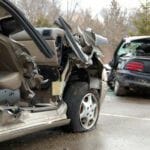Strengthening Drug Tests for Truck Drivers
June 25, 2018 / Truck Accidents
In May, 2018, the Trucking Alliance (also known as the Alliance for Driver Safety & Security) publicly stated that they intend to advocate for a drug testing law that would apply to anyone seeking a “safety-sensitive” position in the trucking industry. One of the main purposes of the law is to address the increasing number of opioid addicts, keeping them out of a tractor-trailer driver’s seat. The proposed law would confirm that a potential employee had not used illegal drugs for a minimum of 30 days.
Don’t We Already Test Drivers for Drug Use?
You might think that the professionals who drive the big rigs would undergo the most comprehensive drug screening possible as part of the employment process. But the managing director for The Trucking Alliance, Lane Kidd, in a 2017 address stated, “Current drug testing methods for truck drivers are failing.” Kidd noted that J.B. Hunt Transportation discovered 1,213 applicants who came up positive when the company tested a hair strand to detect illegal drugs. Contrast this fact with the statistic that 9 out of 10 truck driver applicants at J.B. Hunt had already passed the urinalysis tests required by the federal government. “Clearly, the U.S. Department of Transportation’s pre-employment drug test protocols are missing most lifestyle drug users and opioid addicts, and that’s a national problem for our industry,” emphasized Kidd.
The opioid epidemic is a relatively recent phenomenon, and our laws have not kept up. Opioid drugs cannot be detected in a person’s body after only a few hours, which render urinalysis ineffective because users can simply avoid taking drugs for several hours beforehand. But a hair test for drugs will pick up opioid usage that took place as many as 90 days previous. Opioids that are abused by some truckers include morphine compounds that are sold under many brand names, as well as codeine, hydromorphone, hydrocodone, oxycodone, methadone, and fentanyl.
The Trucking Alliance, a confederation of logistics and freight companies that promotes trucking safety improvements through regulations and technology, based their opioid testing proposal on practices in Brazil. In that country, all commercial truck drivers must pass a hair test for drugs before they are allowed to renew their license. The Brazilian law, which went into effect in 2016, has identified more than one million truck drivers in that country who have either declined to renew their license or who failed the drug test.
Pushback from OOIDA
The Federal Motor Carrier Safety Administration’s data indicate that truck drivers tested positive for drugs in less than one percent of fatal crashes in 2015. For that reason, the Owner-Operator Independent Drivers Association (OOIDA) continues to insist there is no reason to require hair testing. The OOIDA Foundation believes that the Alliance’s position on hair testing as a safety issue is “a solution in search of a problem,” and that insufficient evidence exists to prove that hair testing will make the current testing situation better.
Activity in Congress
Seven Republican Congressmen are on record in support of a petition by several trucking companies to allow hair-based drug testing in place of urinalysis in order to meet the U.S. Department of Transportation’s drug-testing requirements for truck drivers. The trucking companies want to use hair testing because it has a higher level of reliable results. The current petition would allow trucking companies to use only hair testing for all drugs, as opposed to a hair test for opioids and a urine test for other illegal drugs. Even though hair testing is twice as expensive as urinalysis, by using only hair testing, the companies, as a group, would actually save more than $2 million per year.
Hand the worry over to us and let our resources back you up.
Indiana truck accident cases can be complex legal claims that require thorough investigation and demand aggressive litigation to secure the best possible outcome for the plaintiff. While monetary compensation can never undo the damage done as the result of a truck accident, a financial recovery can ease the burdens of overwhelming medical bills, loss of income, and disability.
If you or a loved one has been involved in an accident with a tractor-trailer, we suggest you talk with the Indianapolis truck accident lawyer at Stephenson Rife. Both Mike Stephenson, with his more than three decades of experience, and Brady Rife, with his diverse experience in personal injury litigation, will commit the highest standards of client care to your case. Call Mike or Brady today for a free consultation, or use our online contact form.

 Mike Stephenson has 40 years of experience and is a trusted advisor to many individuals and companies. His current practice is dominated by civil litigation in state and federal courts. He focuses much of his time on handling catastrophic injuries caused by all types of accidents, including motor vehicle, trucking, workplace injuries, product liability, and fire, just to name a few. He also works extensively in construction accidents. [
Mike Stephenson has 40 years of experience and is a trusted advisor to many individuals and companies. His current practice is dominated by civil litigation in state and federal courts. He focuses much of his time on handling catastrophic injuries caused by all types of accidents, including motor vehicle, trucking, workplace injuries, product liability, and fire, just to name a few. He also works extensively in construction accidents. [ 